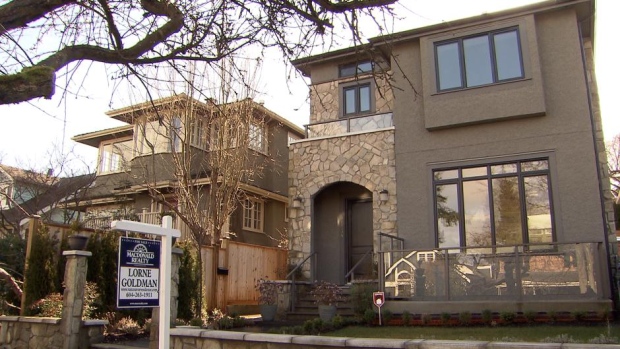
Chinese Firms Are Investing Abroad at Fastest Pace in Eight Years
China’s overseas investment is heading for an eight-year high as its dominant firms build more factories abroad, a shift that could soften criticism of Beijing’s export drive.
Latest Videos
The information you requested is not available at this time, please check back again soon.

China’s overseas investment is heading for an eight-year high as its dominant firms build more factories abroad, a shift that could soften criticism of Beijing’s export drive.

The Related Cos. founder is following the money flowing south by bringing his influence to everything from real estate to schools and health care.

Real estate brokerage stocks tumbled Thursday on waning expectations for Federal Reserve interest-rate cuts, and as a disappointing earnings release raised concern about the sector’s outlook.

Initial data on US gross domestic product for the first quarter of 2024 is set to confirm an ongoing economic boom amid a tailwind from surging immigration.

A South Florida office skyscraper from Related Cos. landed new finance tenants, including a John Paulson business and a private equity firm that counts Mark Bezos as a founding partner.
Dec 21, 2016
BNN Bloomberg

Housing affordability continues to deteriorate in Canada despite measures taken by the government to cool the market, according to a new RBC Economics report.
The Housing Trends and Affordability Report released Wednesday showed housing costs in the third quarter of 2016 ate up about 44 per cent of median household income in Canada, even though overall resale activity has cooled.
Single-detached houses remained the most unaffordable homes across the country, up 1.3 percentage points, followed by condos, which increased 0.8 percentage points.
The most unaffordable region in the quarter was the Greater Toronto Area – the first time in almost two years that Vancouver didn’t record the highest level of affordability erosion in the country. But Vancouver maintained the highest home ownership costs, at 92 per cent of household income.
RBC Senior Economist Robert Hogue told BNN in an interview that we will have to wait even longer to see relief in Vancouver.
“Some would argue [housing prices] would never come back down to Earth in terms of standards we have in other markets across Canada,” he said.
He added that in order for Vancouver prices to come closer to the national level, the market would require “quite a price correction,” which he says at this stage is “very unlikely.”
The B.C. government implemented various measures throughout the year to help cool housing, including the 15 per cent foreign homebuyers’ tax and the first-time buyers’ land transfer tax.
Still, Hogue said there doesn’t seem to be any significant slowdown in activity.
Methodology: The RBC Housing Affordability Measures show the proportion of median pre-tax household income that would be required to service the cost of mortgage payments (principal and interest), property taxes, and utilities based on the average market price for single-family detached homes and condo apartments, as well as for an overall aggregate of all housing types in a given market.